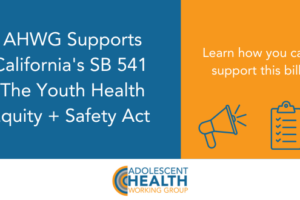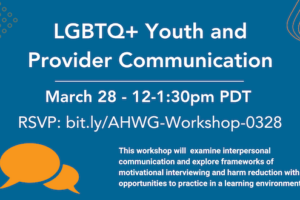
Knowing the Ins and Outs of Compassion Fatigue
The capacity of a professional to provide care and support to their patients or clients can be really rewarding, but constantly opening your heart with compassion can be overwhelming. To better manage your emotions as a provider, recognize how caregiving in the context of trauma can affect your own mental health. Additionally, practice self-compassion when you’re involved in tough situations. Having awareness of these effects can help prevent burnout and over-exhaustion while renewing that sense of fulfillment that comes with caregiving.
As a youth provider, you may be familiar with the terms “compassion fatigue,” “burnout,” and “vicarious trauma,” describing the negative effects providers can experience when working closely with patients from trauma backgrounds. Be mindful that burnout can develop more slowly after repeated involvement in emotionally taxing situations. In some instances, burnout might be more gradual, and with a slow build-up, can catch you off guard. If you’re experiencing burnout, you probably feel exhausted, have a decreased sense of work satisfaction, and might not feel as able to provide genuine emotional support to patients. In the most severe case, you might even begin to dissociate or self isolate.
While burnout typically refers to more general, passive effects of care providing, vicarious trauma refers to the provider’s active experience of acute trauma symptoms due to repeated secondary exposure to distressing events. For example, a therapist that repeatedly listens to several patients describe traumatic events might start to show signs of vicarious trauma. These symptoms can present similarly to those of PTSD and can lead to more serious outcomes, like depression, memory impairment, feelings of despair, and shift in worldview and identity.
A major component of managing and preventing compassion fatigue is creating a self care routine. Take a moment to reflect on what activities you do to foster your mental clarity and emotional wellbeing. It may be time to reconsider the way you think about and prioritize self care. In health care professions and trauma-related work, it is easy to become consumed with the pressures of hard work, achievement and productivity, and the importance of relaxation and self-preservation can get lost. The first step to building healthy habits is to reframe your views about self care. Let go of stigma and guilt associated with taking time off and start viewing self care activities as an essential aspect of your work, rather than a luxury. Visit the AHWG Trauma and Resilience Toolkit for tips on building resilience and recovering from vicarious trauma and compassion fatigue.
The ABCs of Prevention
Here are some steps you can take to stay engaged with your mental health within trauma-related work:
Become more aware of the stressors you face within the context of trauma-related work
If you work in a caregiving profession, take the Professional Quality of Life Scale (ProQOL). This is a self-assessment tool that can help you determine where you stand in your professional well being. Becoming more acquainted with the factors of compassion fatigue can help you reassess your experiences and better understand how you’re being affected by your work.
Find a healthy work life balance
Implementing self care into your routine is really important for preventing burnout. Find activities and passions that work for you that help you reset and restore your capacity for emotionally challenging work. This can include mindfulness exercises, affirmations, exercise, hobbies or just simply taking a day off. You can find more effective self care strategies like the “6 Habits of Happiness Worth Cultivating” in AHWG’s Trauma and Resilience toolkit.
Strengthen connections with friends, family, and community.
Find someone outside of work that you can talk to about your experiences. Become more involved in your community. Building a strong support system is one of the most effective ways to overcome the stress of trauma-related work.
Psychologist Heidi Allespach, PhD suggests that, in working with trauma, you should have a “semipermeable membrane” around your hearts (Clay 2020). If you work in a caregiving profession, you know how much empathy and compassion is involved in connecting with patients and providing genuine help. Remember to establish boundaries between your personal and professional life. Setting limits to these connections will help prevent you from becoming emotionally overwhelmed within trauma-related work.
If you think you are experiencing compassion fatigue or vicarious trauma, you may benefit from the help of a professional. For more information and support for compassion fatigue, check out the following resources:
- Pesi – Certification Training for Compassion Fatigue Professionals
- Good Therapy – The Cost of Caring: 10 Ways to Prevent Compassion Fatigue
- The Wellness Society – How to Deal with Compassion Fatigue: 3 Mindset Shifts to Help You Feel Better
To gain more insight and collaborate with community members on expansion of mental health resources, consider joining the AHWG Mental Health Committee, meeting on the second Thursday of each month at 4pm via Zoom. Contact Adam Chang at [email protected] for more information about joining the group.
Photo Credit: Unsplash



